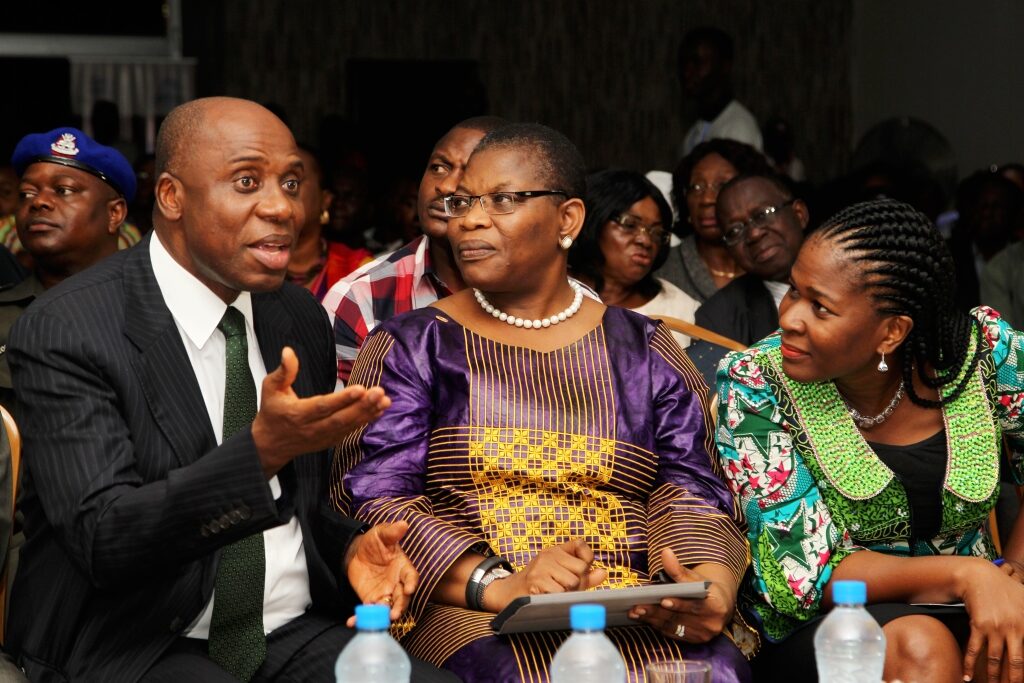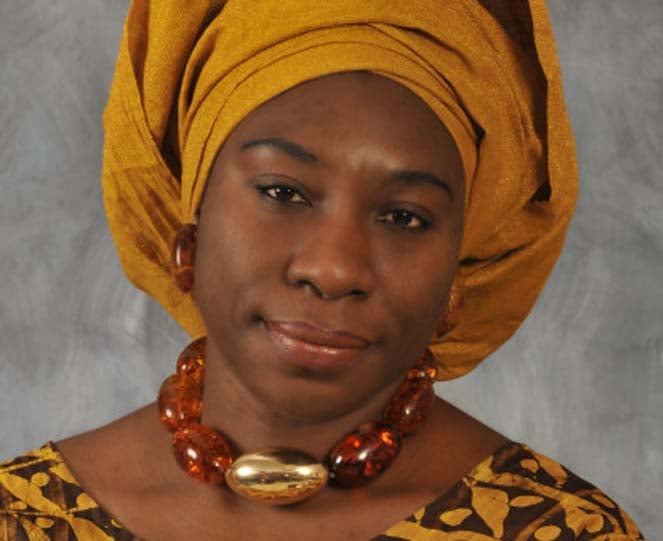2027 Showdown: Amaechi & Ezekwesili Clash Over Electoral Reforms

Former ministers Chibuike Amaechi and Dr. Oby Ezekwesili expressed divergent views on the efficacy of electoral reforms in Nigeria ahead of the 2027 general election. Their disagreement unfolded during the National Electoral Reforms Summit 2025, an event themed “Critical Constitutional Amendments for Credible Election in 2027,” organized by the National Consultative Front/Labour and Civil Society Front in collaboration with the Movement for Credible Elections in Abuja.
Dr. Ezekwesili, the former education minister, championed comprehensive reforms, particularly advocating for the financial and operational autonomy of the Independent National Electoral Commission (INEC). She argued that INEC should receive allocations directly from the Consolidated Revenue Fund without executive interference, ensuring its budget is protected, released in full, and on time for proper election planning. To curb corruption, Ezekwesili proposed mandating INEC to adopt open budgeting and spending principles, collaborating with civil society organizations for financial tracking and accountability.
Ezekwesili further called for the organizational strengthening of INEC, specifically enhancing its prosecutorial powers. She highlighted that the current reliance on the police and Attorney General for electoral offense prosecution results in a lack of credible investigation and conviction, fostering a culture of impunity. Granting INEC its own prosecutorial unit or dedicated access to prosecutors, she asserted, would ensure timely action against electoral violations and serve as a crucial deterrent against fraudulent behaviors that undermine the electoral system.
A key proposal from Ezekwesili was the mandatory electronic transmission of election results. She emphasized the need to codify the use of technology for results transmission to eliminate ambiguities, reduce opportunities for manipulation, and increase public confidence in the electoral process.
In contrast, Chibuike Amaechi, former transport minister, cautioned against over-reliance on technology, citing risks related to cybersecurity, infrastructural inadequacies, and voter exclusion in areas with limited connectivity. Amaechi advocated a more gradual, stepwise approach to reform, combining technological innovation with traditional electoral safeguards to maintain transparency while ensuring the inclusivity of all eligible voters.
The spirited debate highlighted the tension between progressive electoral modernization and practical implementation challenges. Analysts noted that the clash underscores the urgency of balancing technological advancement, legal frameworks, and institutional capacity to achieve credible and fair elections in Nigeria’s 2027 polls.
Recommended Articles
Political Earthquake: Atiku Confronts IBB, Slams APC After Minna Meeting

Former Vice President Atiku Abubakar visited Gen. Ibrahim Babangida, sharply criticizing the ruling APC as "a party of f...
Iyabo Obasanjo Electrifies Ogun Governorship Race with Shock APC Defection

Prof. Iyabo Obasanjo, daughter of former President Olusegun Obasanjo, has declared her bid for the 2027 Ogun State Gover...
Atiku's Son's Stunning Defection: Backs Tinubu, Ignites Family Feud

Abba Abubakar, son of former Vice President Atiku Abubakar, has officially defected to the ruling All Progressives Congr...
Explosive Claim: Fayose Accuses Wike, Fubara of 2027 Rigging Plot for Tinubu in Rivers

Isaac Fayose, a social commentator, claims that neither FCT Minister Nyesom Wike nor Rivers State Governor Siminalayi Fu...
Ijaw Congress Declares Allegiance: Wike Gains Key Support from Influential Ethnic Group

A significant political shift has occurred in Rivers State as the Rivers Ijaw People’s Congress, led by Senator George S...
Electoral Showdown: Nigerians Demand Real-Time Electronic Transmission Amidst Senate Scrutiny

Nigeria is grappling with a heated debate over electronic transmission of election results and recent amendments to its ...
You may also like...
Bundesliga's New Nigerian Star Shines: Ogundu's Explosive Augsburg Debut!

Nigerian players experienced a weekend of mixed results in the German Bundesliga's 23rd match day. Uchenna Ogundu enjoye...
Capello Unleashes Juventus' Secret Weapon Against Osimhen in UCL Showdown!

Juventus faces an uphill battle against Galatasaray in the UEFA Champions League Round of 16 second leg, needing to over...
Berlinale Shocker: 'Yellow Letters' Takes Golden Bear, 'AnyMart' Director Debuts!

The Berlin Film Festival honored
Shocking Trend: Sudan's 'Lion Cubs' – Child Soldiers Going Viral on TikTok

A joint investigation reveals that child soldiers, dubbed 'lion cubs,' have become viral sensations on TikTok and other ...
Gregory Maqoma's 'Genesis': A Powerful Artistic Call for Healing in South Africa

Gregory Maqoma's new dance-opera, "Genesis: The Beginning and End of Time," has premiered in Cape Town, offering a capti...
Massive Rivian 2026.03 Update Boosts R1 Performance and Utility!

Rivian's latest software update, 2026.03, brings substantial enhancements to its R1S SUV and R1T pickup, broadening perf...
Bitcoin's Dire 29% Drop: VanEck Signals Seller Exhaustion Amid Market Carnage!

Bitcoin has suffered a sharp 29% price drop, but a VanEck report suggests seller exhaustion and a potential market botto...
Crypto Titans Shake-Up: Ripple & Deutsche Bank Partner, XRP Dips, CZ's UAE Bitcoin Mining Role Revealed!

Deutsche Bank is set to adopt Ripple's technology for faster, cheaper cross-border payments, marking a significant insti...